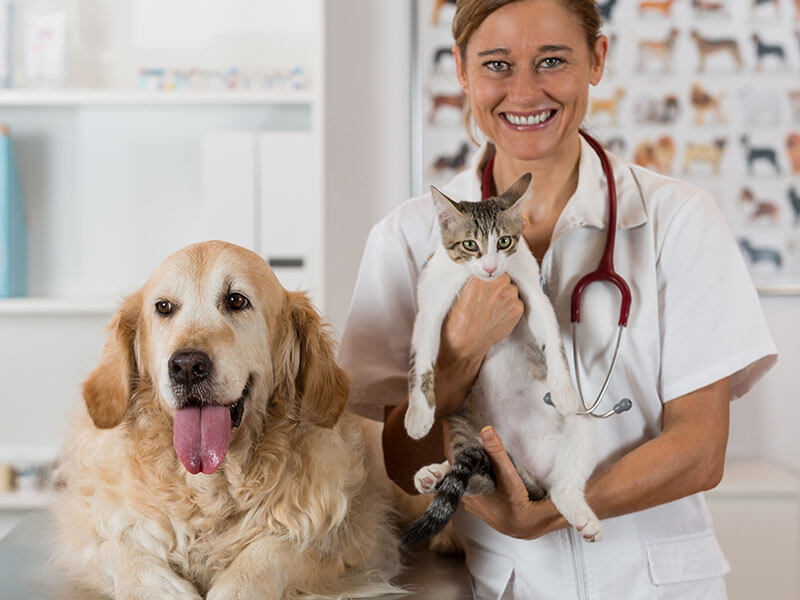
How to Find the Best Vet for Your Pet
Whether it be a new pet, a new home, or something else altogether – if you have to find a new veterinarian, this can be a process. Most pet owners want to make sure they can fully trust their pet’s medical care. Not only that, but proximity to home, parking/accessibility, and other factors also come into play. Read on to learn Pet Shield‘s suggestions for finding the best vet in your area, for you and your pet!
Ask around
Don’t wait for an emergency to start looking for your vet. Talk to other pet owners in your circle: family members, friends, your Facebook connections, etc. Take the advice of those you trust, and look into reviews for the suggested vets and clinics. High ratings are important, but so is location/accessibility, and other factors like parking and hours of operation.
Another way to discover some of the best vets in your area is by using healthypet.com, hosted by the American Animal Hospital Association (AAHA), This site offers an online search for accredited animal hospitals anywhere in Canada or the United States. Accredited practices have completed the application process of the AAHA, which includes an on-site visit to evaluate the facilities and staff.
Visit the clinic
Getting a visual of what might be your pet’s new clinic can greatly impact your decision. Assess the waiting room and overall feel of the clinic. Note the number of people in the waiting room and ask about wait times. But remember that a full waiting room could just be the sign of multiple emergencies at the time.
Ask any questions
It makes sense that you’ll have questions for the person who may provide medical care for your fur baby. Make sure to ask:
What are your qualifications?
What equipment is found on site (such as ultrasound of endoscopy)?
Are any tests or treatments outsourced to a different clinic?
Does your clinic provide emergency care?
Are there multiple veterinarians? If so, who decides which vet will treat my pet?
What are your hours?
You should feel completely involved and in charge of the decision-making process, and well-versed on what could be offered to your pet by this vet and clinic. If you have any concerns, make sure to express them. You will want a vet who is understanding and considerate of these concerns. Knowledge and ability to diagnose disease is important, but communication with clients is equally important.
Veterinarians all have different personalities. Some may try to bond and establish more of a relationship with your pet, while others are more business-like and to the point. Ask yourself what type of vet will be best for you.
Watch Your Pet
Bring your pet down to the clinic during your visit, especially if they’re comfortable with short trips. You may be able to tell a lot from your pet’s body language. You’ll want to see your pet react to the vet they way they might with a friend at home.
A comfortable pet should demonstrate these behaviours:
- Eager to enter the building
- Relaxed attitude
- Moderate alertness, interest in surroundings
Whereas an uncomfortable may demonstrate these behaviours:
- Clung to your side
- Stiff or jolted movements
- Whining
- Ears pinned down
- Refusing food
- Excessive panting
Try your best to make the vet’s office a fun place for your pet. Try taking extra trips to the clinic throughout the year for things like weigh-ins, or just a treat, so not all experiences involve uncomfortable prodding or needles.
Cost VS Value
When comparing prices with other clinics, remember that one vet’s price may include things that others don’t. For example, one may include painkilling medication and monitoring, while another vet’s price may not include these necessary treatments. Specify that you are asking for the total price of a procedure. Clinics will also have overhead costs that vary – practices in urban areas may have higher prices than those in smaller towns.
The easiest way to ensure your pet is receiving the best care for your money is having pet insurance! Check out Pet Shield’s Plans & Coverages page today to see what pet insurance could help cover.
Trial and Error
The first veterinary clinics you look into might not be the right fit for you or your pet. That’s okay! Don’t let the process discourage you. A little trial and error can end up with the best
result – a clinic where you are getting your money’s worth, and that you and your pet both feel happy visiting.